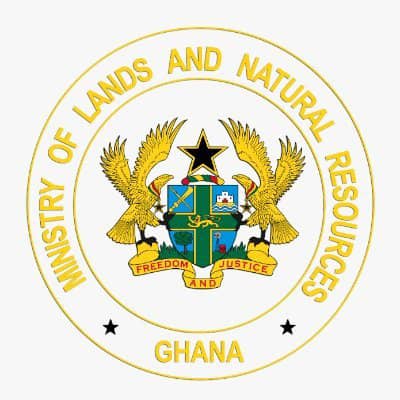The Government of Ghana has officially declined the application for the renewal of the mining lease for the Damang Mine, operated by Abosso Goldfields Limited (AGL), a subsidiary of Gold Fields Limited. The decision was announced by the Minister for Lands and Natural Resources, Hon. Emmanuel Armah-Kofi Buah, ahead of the lease’s expiration on April 18, 2025.
In line with Section 23 of the Minerals and Mining Act, 2006 (Act 703), and following a comprehensive review process, the Government will assume full operational control of the mine effective April 19, 2025.
AGL ceased active mining at Damang in 2023 and has since focused on processing stockpiled . The company had projected the remaining life of the mine at approximately one year, yet failed to meet several critical requirements to justify a lease renewal.
Key Reasons for Lease Rejection
According to the Ministry, the rejection is grounded in both legal provisions and empirical findings, including:
Absence of Declared Reserves:
AGL’s renewal application lacked verifiable mineral reserve data, a violation of Regulation 189 of L.I. 2176. The company’s own 2024 Annual Report, released after the lease rejection, confirmed the absence of reserves to support continued operations.
No Technical Program:
The application did not provide a detailed technical report outlining past performance or future plans—key elements required for responsible mineral resource management.
Lack of Exploration Investment:
AGL has not allocated any budget for exploration at Damang in the past two years, casting doubt on the company’s commitment to sustainable mining and long-term viability.
Government to Ensure Smooth Transition
The Ministry has assured stakeholders that the transition to state oversight will be orderly, transparent, and legally sound. The Government emphasized its commitment to protecting jobs, honoring valid contracts, and maintaining uninterrupted operations.
Key measures announced include:
•Operational Continuity: All essential services—security, healthcare, logistics, and supply chains will continue without disruption. Employees will retain their roles and receive full compensation.
Support for Local Content: Priority will be given to local staff and businesses in line with Ghana’s Local Content Policy, ensuring that nearby communities benefit directly from the mine’s operations.
Stakeholder Engagement: A dedicated transition team will engage workers, contractors, and community leaders to address concerns and guide the process.
Security and Stability: Strict protocols will be enforced to maintain order and protect assets. Unauthorized access to the mine site will not be tolerated.
Respect for Legal and Investment Frameworks: The transition will comply fully with Ghana’s mining laws and international investment protection agreements.
A New Chapter in National Resource Management
“This is a pivotal step in Ghana’s economic transformation,” said Minister Armah-Kofi Buah. “It reflects a shift away from automatic renewals and toward strategic reassessment of mineral licenses to ensure they align with the long-term interest of our nation.”
He reaffirmed Ghana’s commitment to a balanced approach to investment, noting that the country remains open to foreign investors, but with a sharpened focus on national value retention and resource stewardship.
Call for Cooperation
The Government has called on all stakeholders—workers, community leaders, contractors, and citizens—to support the transition process.
“This is a moment of national resolve,” the Minister concluded. “Today’s decisions are guided by fairness, sustainability, and the firm belief that Ghana’s mineral wealth must fuel Ghana’s progress.”
Story by Sheila Otuo Baffour

